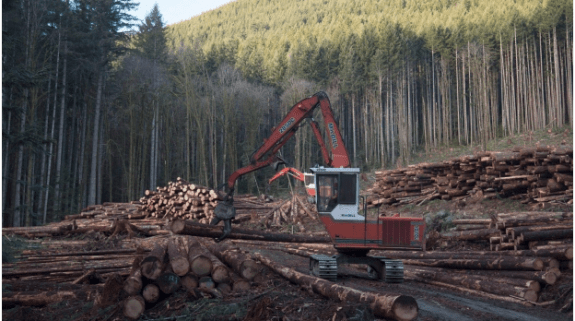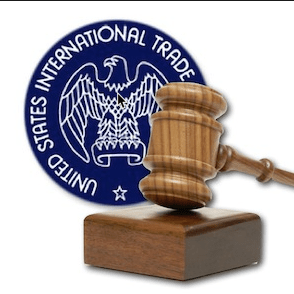
The U.S. International Trade Commission (ITC) says that it has found a reasonable indication that softwood lumber products from Canada materially injured American producers.
According to the CBC, the findings set the stage for the imposition of preliminary duties that softwood producers fear could impact Canadian jobs.
The trade commission announced January 6th that it made an initial determination of harm from Canadian lumber that is “allegedly subsidized and sold in the United States at less than fair value.”
The Commission says the U.S. Commerce Department will continue the investigations launched on December 16 into the imported products.
“In the final phase, which is a much longer and much more in-depth investigation, the commission will make a determination whether the U.S. industry is injured by reason of the imports,” said spokeswoman Peg O’Laughlin.
The action reignites a long-standing trade dispute between the two nations that in the past resulted in the United States imposing billions of dollars in tariffs on the widely-used building products.

“Our softwood lumber producers and workers have never been found in the wrong; international bodies have always sided with our industry in the past,” said Canadian International Trade Minister Chrystia Freeland.

Steve Thomson, B.C. Forests, Lands and Natural Resource Operations Minister says that the allegations of unfair trade practices are without merit.
“These are allegations that, time after time, have been proven to be false before NAFTA and World Trade Organization tribunals,” said Thomson.
“B.C.’s forest policies are trade compliant. This issue can be resolved only with a fair, negotiated trade agreement with the United States, not more litigation.”

According to the Manufactured Housing Institute (MHI), U.S. home builders and Canadian lumber producers and exporters testified at the ITC conference that higher tariffs and duties on Canadian imports will not result in more sales for U.S. lumber producers because of the special features of Canadian timber, specifically spruce pine fir, which they said performs better than southern yellow pine.
U.S. lumber producers argued that their clients make purchases based solely on price, not on performance characteristics of various lumber species. They also argued that the Canadian government’s subsidies to its timber industry create unfair price competition.
The U.S. – Canada softwood lumber dispute is one of the largest and most enduring between the two nations. Given the “America First” plan of the incoming Trump Administration, the Daily Business News will continue to monitor this story closely and provide updates as information becomes available. ##
(Image credits are as shown above.)

Submitted by RC Williams to the Daily Business News for MHProNews.

























